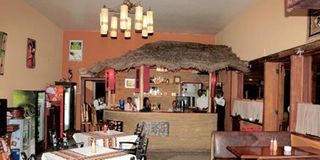New hotels rating plan runs on rough grounds as funds thin out

Classification is also expected to raise Kenya’s standing in global conference tourism. Photo/FREDRICK ONYANGO
The proposed fresh classification of hotels, lodges and restaurants in the country has run into headwinds as inadequate funding threatens to scuttle the exercise, which had been scheduled to kick off this month.
The Ministry of Tourism is banking on the classification process to set new standards for hotels as Kenya seeks to benchmark the critical services sector with international best practices.
Sources in the ministry said initial funds set aside for the project could not foot the mammoth exercise, adding that a top-up funding for the exercise is expected before the end of the month.
“We hope that the funding and operationalisation of the authority will be done soon so that the process can begin as earlier planned,” the source, who cannot be named since he is not allowed to speak on behalf of the ministry, said in reference to the Hotels and Restaurants Authority (HRA).
Tourism minister Najib Balala launched the HRA board, which is charged with ensuring hotels, lodges and restaurants across the country are classified according to the East Africa Community (EAC) criteria, in late 2009. The authority is established under the Hotels and Restaurants Act.
But even with the process yet to take off, industry players have welcomed the move which most say will level the playing field.
The exercise they expect will right some of what they terms as discrepancies associated with the last classification carried out in 2002.
“This process has the potential of gaining an acceptability among industry players. The previous efforts have been riddled with instances of corruption. This time round, we expect a more up-to-the-point classification,” said Ms Millicent Odhiambo, the executive officer at Mombasa and Coast Tourist Association.
Already, classification assessors from the region have undergone training on the EAC criteria, a move that will see all the five-member states - Kenya, Uganda, Tanzania, Rwanda and Burundi - adopting the same norms.
Globally, classification of hotels and restaurants creates uniformity in the industry as it provides for common elements in every class of hotel and restaurant that their clients should expect.
This often ranges from the type of services offered to facilities found in an establishment.
“This process will be a boost to our marketing campaigns across the world since the higher you get rated, the more clients you are likely to attract,” said Mr Patrick Marekia, group general manager of Sopa Lodges in Kenya.
If and when it kicks off, the exercise will take between three to six months during which all hotels, restaurants and lodges will remain without classification.
This is, however, not expected to affect businesses especially those found in the tourist-rich areas.
“Most businesses have taken in bookings for the period. We, therefore, do not expect a major shift in bookings,” explained Mr Marekia.
Apart from a boost in the hotel industry standing in accommodation, the classification is also expected to raise Kenya’s standing in global conference tourism.
As a niche product for the sector, the country has over the past two years hosted high profile meetings.



